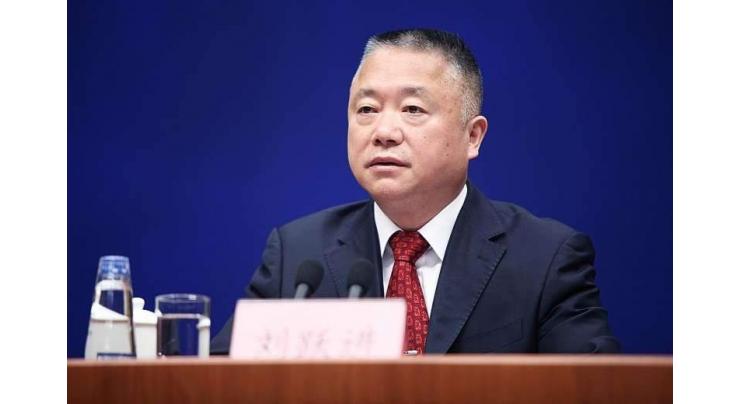
- Home
- World
- News
- Beijing Believes Afghanistan's Drug Problem Requires Enhanced International Cooperation
Beijing Believes Afghanistan's Drug Problem Requires Enhanced International Cooperation
Fahad Shabbir (@FahadShabbir) Published November 13, 2018 | 11:32 AM

The problem of mass drug production in Afghanistan poses a threat to the whole international community and therefore requires the countries around the world to consolidate their efforts and enhance cooperation to tackle this challenge, Chinese Assistant Minister of Public Security Liu Yuejin said on Tuesday.
BEIJING (UrduPoint News / Sputnik - 13th November, 2018) The problem of mass drug production in Afghanistan poses a threat to the whole international community and therefore requires the countries around the world to consolidate their efforts and enhance cooperation to tackle this challenge, Chinese Assistant Minister of Public Security Liu Yuejin said on Tuesday.
"The Afghan drug problem is a challenge not only for Afghanistan, but for the entire international community as well, all parties concerned should strengthen political intentions and practical cooperation in combating drugs in this country, form a comprehensive and balanced anti-drug strategy, expand international cooperation to curb production and supply of drugs," Liu said during the session of the Paris Pact Initiative (PPI) in Beijing.
According to the official, the efforts made by the international community so far helped achieve certain results but the problem of opium poppy cultivation and subsequent heroin production from opium remains extremely acute.
"High purity heroin produced in Afghanistan is smuggled all over the world, the drug problem worries the Afghan government, threatens the security, stability and socioeconomic development of Afghanistan, its neighbors and all countries around the world," Liu added.
The assistant minister also noted that heroin smuggled from Afghanistan accounted for around 15 percent of all heroin in China.
Afghanistan has been one of the world's leading heroin suppliers for more than two decades. Mass drug production hampers the efforts made to stabilize the situation in the country, where the government has been long fighting insurgents and terrorist movements, as drugs serve as an important source of income for such groups, namely, for the Taliban.
According to the United Nations Office on Drugs and Crime (UNODC), a drastic increase in opium production was registered in Afghanistan in 2017 � opium poppy was cultivated on around 328,000 hectares of land, marking an over 63 percent surge compared to 2016, while the production itself skyrocketed by 87 percent to its record high level of 9,000 tonnes.
The PPI was established in 2003 as an international partnership aimed at tackling the illicit traffic of drugs coming from Afghanistan. The Paris Pact currently comprises 58 countries and more than 20 organizations, including UNODC.
Related Topics
Recent Stories

Tennis: ATP Barcelona Open results - 1st update

Swiatek's perfect 10 in Stuttgart as Vondrousova stuns Sabalenka

Arandu's roads closed due to flooding

Oil tanker catches fire in Islamabad’s Blue Area

Pakistan committed to ensure safety of foreign nationals: FO

Tennis: WTA Stuttgart results - 1st update

Four passengers injured as train hit an empty vehicle

Over- speeding bus crushed to death two bike riders

Turkey's Freedom Flotilla ready to set sail for Gaza

French teen dies from heart failure after knife attack near school

Iranians appear unfazed by Isfahan blasts

UAF celebrates Int'l Chinese Language Day
More Stories From World
-

Turkey's Freedom Flotilla ready to set sail for Gaza
52 minutes ago -

French teen dies from heart failure after knife attack near school
52 minutes ago -

Iranians appear unfazed by Isfahan blasts
1 hour ago -

Ecuador mayor killed ahead of anti-crime referendum: police
1 hour ago -

Croatia top court bars president from becoming next PM
1 hour ago -

Lacking storm drains, Dubai sees persistent flooding
2 hours ago
-

West Bank villagers vigilant but vulnerable after settler attacks
2 hours ago -

Calls for calm after reported Israeli strike on Iran
2 hours ago -

Iran blasts rattle global markets
2 hours ago -

Photography is 'mirror on society': Sebastiao Salgado
2 hours ago -

Zelensky says NATO must choose 'whether we indeed are allies'
2 hours ago -

Kenya mourns defence chief killed in helicopter crash
2 hours ago











